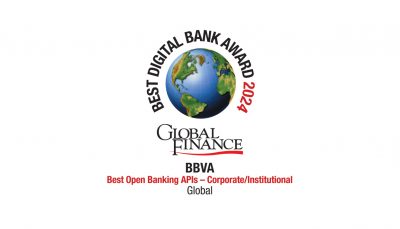What are open APIs?
Any new company or startup that works with its customers’ payment or financial data needs to access other companies’ systems to validate and make the payment. Today there are so many ways of doing this that it is hard to decide which is most appropriate: from native digital options that any business of whatever size can sign up for, to outsourcing debt collection or continuing to use the traditional payment management gateways that work with credit cards.
Open APIs simplify these processes regardless of the bank, card provider or other any factors. The same methodologies are used to check an account balance, obtain spending histories or manage payments, thereby eliminating the need for extra procedures or costly approvals that need to be done individually.
These examples and more all work through the same interconnections and APIs. There is no need to work with any more providers to license new software platforms, which reduces the direct economic impact of adding new financial functions to a business.
Will they have a significant impact?
For many companies, and even for the general public, the new open APIs will change the way we think about banking. New tools will emerge, others will end up becoming obsolete, and the rest will have to adapt to a new regulatory situation where some partners use unified open APIs instead of a myriad of different commercial APIs. A new era with a new mindset.
The big commercial and investment banks will be most exposed in this new scenario, but they will also reap the most benefits. A study by Accenture reveals that 60% of US banks and 63% of Asian banks have already adopted the new PSD2 guidelines, without being required to do so like their European equivalents.
It is only a matter of time before the simple exchange of financial data with shared tools and protocols is permitted.
For example, financial and loan markets will have information available almost instantly to decide how to offer their services. The companies that adapt fastest to this new scenario with rapid or more suitable decision-making will see the best results thanks to their algorithms, decisions and tools built on open banking.
According to a report by Barclays in the United Kingdom on Credit Kudos, a person without a credit history may now request one thanks to this new open banking system. With Credit Kudos they can share their private financial information securely from their online bank with the lender to allow them to assess the situation. This way people who so far have been excluded from popular financing methods –traditionally underprivileged segments and young people– could take a leap forward financially.
Are they secure?
In security terms there is no inherent factor that makes commercial APIs any better than open ones. Open APIs simply have their methodology shared and certified by regulators, and are used by financial institutions all over the world. In contrast, commercial APIs refer to any private interconnection between two or more institutions, the details and characteristics of which are decided at a private level.
From a financial standpoint, security must be divided into two parts: the part involving data transfer, and another part to do with their storage.
The storage is independent of the APIs and depends on the measures taken by each institution. PSD2 systems is mandatory in Europe since January 2018. This is a much stricter regulatory framework that will focus on protecting the privacy of the data and establishing guidelines and recommendations.
Banks and financial institutions are constantly audited both internally and externally, so the tendency is to have standard large-scale measures, based on the current regulation in each country or region.
Data is transferred through open APIs using the latest-generation encryption protocols, codes and algorithms. This is an alternative way of accessing financial data based on the access security already in place in each bank.
How does the consumer benefit?
The first thing the consumer will notice is a new wave of applications, platforms and services for managing their money. This implies new payment channels, new ways of obtaining credit and loans, new tools for managing our savings, new platforms for investing, and much more.
This extra transparency in managing financial data means that moving money is cheaper and more immediate. All banks in Europe will be required to comply with a new regulatory framework that eliminates banks’ traditional transfer walls and costs, for example. Moving money from one bank to another will be more convenient, and decisions on loans will be resolved much faster, even for people without a robust credit history.What about businesses?
These may be the ones who see the most benefit from open APIs. Open APIs allow companies to reduce their cost of developing or implementing tools for managing collections, payments and relations with financial institutions, customers and suppliers.
All businesses will benefit, but obviously the financial instrument technology sector (better known as fintech), and particularly small startups, will be able to operate at speeds previously only available to large institutions like credit card institutions and banks who could afford to set up private connections and interact using their own systems. Being able to interact with the same methodologies and capabilities as banks or big companies will give them additional innovation and speed and allow new ideas to flourish.
If you want to know more about BBVA´s financial APIs, visit this website


























